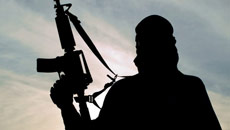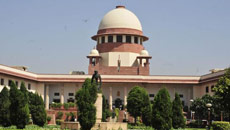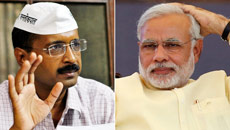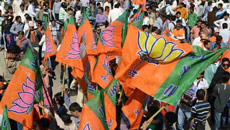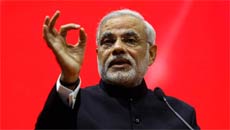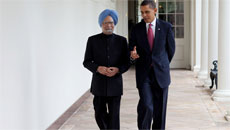For close to a century, many generations of an Indian family have been looking after the Indian Hospice, a symbol of India's heritage, in the old city of Jerusalem. This existence intrigued Indian diplomat-writer Navtej Sarna, who has chronicled its story in a fascinating new book.
Sarna had read about this institution before, but it was only when he landed in Israel in 2008 as the Indian ambassador that he could visit the hospice which hosted Indian soldiers during World War II and today provides accommodation to Indian pilgrims of all faiths.
Sarna felt the topic was "compelling and waiting to be written".
The outcome? His latest non-fiction work, "Indians at Herod's Gate: A Jerusalem Tale" (Rainlight, Rs. 500) came into being after three years of meticulous research, several interactions and countless walks in the old city.
"This is a book about Indian connection to Jerusalem through the centuries and is explored from the standpoint of the Indian Hospice," Sarna, currently a Special Secretary in the Ministry of External Affairs and who has been named Secretary (West), told IANS in an interview.
In 2012, then external affairs minister S.M. Krishna had provided a grant of $25,000 to the hospice.
"When you visit something as layered and rich and complex as Jerusalem, the combination is so compelling that I had to go for it," he added.
The 182-page book takes the reader back to the point when Baba Farid, a sufi saint, visited Jerusalem 800 years ago.
The Indian Hospice was born 800 years ago, with Sheikh Nazir Ansari, a police inspector's son from Saharanpur in Uttar Pradesh, becoming the first Indian to look after the hospice, situated opposite Herod's Gate in the old city, since 1924. Since then generations of the Ansari family have kept the Indian flag flying in a situation which, according to Sarna, is "politically fraught where every inch of territory is claimed or counter-claimed".
It was this Indian angle that Sarna, author of "Winter Evenings", couldn't resist.
Several meetings with the family of the present Jerusalem Hospice director, Sheikh Mohammed Munir Ansari, led to revelations the family wasn't even aware of. And then began the quest to make the Ansari family a centre point, explore this little Indian haven and compare it with complexities of many decades of conflicts that engulf the state located in southwest Asia between the Mediterranean and the deserts of Syria and Arabia.
"There are interesting details about how this place became the centre of conflict in 1967 (during the Six-day war), how it was rebuilt and how its character has changed over several decades," said Sarna.
"It was very important to put a social and political context in place at every stage. It was very challenging to tell just enough and not overload so much of history that the main story gets submerged," he added, referring to the time when Jerusalem had just come out of the Ottoman Empire and was brought into the British Mandate for Palestine.
According to Sarna he followed an "organic process" over a period of three years during which he explored the bylanes of the old city like one does in Chandni Chowk. Admitting that being an Indian was an advantage there as "Indian standing is very high no matter which side of the conflict", Sarna feels there are many untold stories that need to be told and have India connection.
